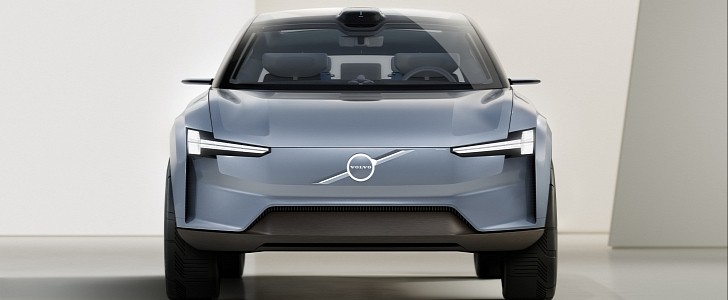Following the Ford era, Volvo was purchased by Geely in 2010. Under the Chinese overlord, the Swedish automaker was offered valuable resources toward the development of the second-generation XC90 and pretty much every other model on sale today, including the posh Polestar 1 and 2.
Years of rising sales translated to rising profitability for the once-ailing company, which is why Volvo intends to acquire Geely’s stake in the companies’ joint ventures in China. Taking full control over manufacturing and sales in the world’s largest new-car market is how Volvo aims to increase net income and equity, most likely in preparation for an initial public offering.
The first major non-Chinese automaker with full control over its Chinese operations also aims to create a clearer ownership structure within itself and Geely. Currently pending regulatory approval, the reorganization will be formally completed sometime during calendar year 2023. In the first instance, the joint-venture requirement for production will be lifted in 2022.
Volvo and Geely currently share two manufacturing plants (in Chengdu and Daqing) as well as an R&D complex in Shanghai. These facilities are vital for the Swedish automaker and Polestar as the industry accelerates toward EVs because China dominates the world’s lithium-ion battery supply chain.
The closer the supplier is, the more affordable the battery, right? It’s also worth highlighting that labor costs less in the People’s Republic of China.
A joint venture with a Chinese automaker is mandatory for overseas automakers that want to do business in the Middle Kingdom since 1994. But in 2018, the National Development and Reform Commission announced that it’s scaling down the policy to open the market a little more.
Earlier this year, Volvo Cars mysteriously scrapped a proposed merger with Hong Kong-listed Geely Automobile. The most likely reason for this change of heart is the IPO mentioned earlier, which should infuse the Swedish automaker with loads of fresh capital from gung-ho investors.
The first major non-Chinese automaker with full control over its Chinese operations also aims to create a clearer ownership structure within itself and Geely. Currently pending regulatory approval, the reorganization will be formally completed sometime during calendar year 2023. In the first instance, the joint-venture requirement for production will be lifted in 2022.
Volvo and Geely currently share two manufacturing plants (in Chengdu and Daqing) as well as an R&D complex in Shanghai. These facilities are vital for the Swedish automaker and Polestar as the industry accelerates toward EVs because China dominates the world’s lithium-ion battery supply chain.
The closer the supplier is, the more affordable the battery, right? It’s also worth highlighting that labor costs less in the People’s Republic of China.
A joint venture with a Chinese automaker is mandatory for overseas automakers that want to do business in the Middle Kingdom since 1994. But in 2018, the National Development and Reform Commission announced that it’s scaling down the policy to open the market a little more.
Earlier this year, Volvo Cars mysteriously scrapped a proposed merger with Hong Kong-listed Geely Automobile. The most likely reason for this change of heart is the IPO mentioned earlier, which should infuse the Swedish automaker with loads of fresh capital from gung-ho investors.











